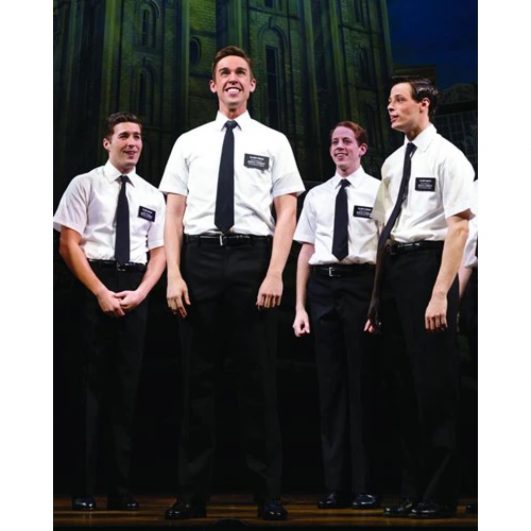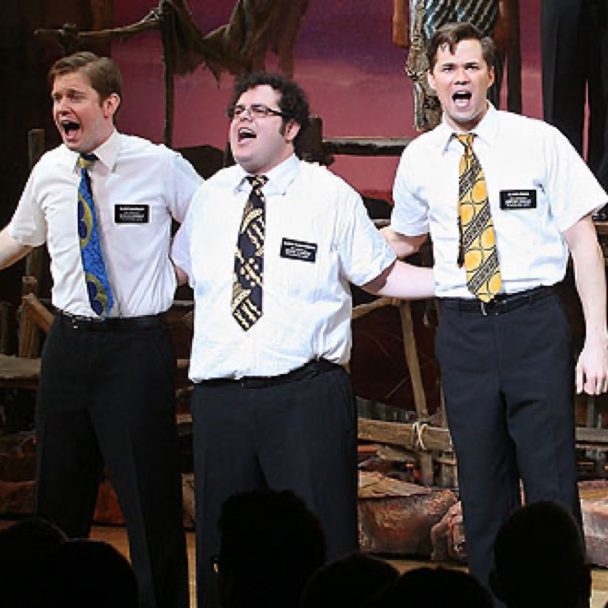When it comes to Jehovah's Witness suit cases, we're talking about more than just legal battles. We're diving into the heart of religious freedom, individual rights, and the complexities of the law. Picture this: a group of people who believe deeply in their faith, facing off against governments or institutions that challenge their practices. It's not just about winning or losing; it's about standing up for what you believe in, no matter the odds. So, let's take a closer look at why these cases matter and why they're making waves across the globe.
Now, you might be wondering, "Why should I care about Jehovah's Witness suit cases?" Well, my friend, these cases aren't just about one religion. They're about setting precedents that affect everyone's rights. Whether you're a believer or not, the outcomes of these legal battles can shape how we all practice our freedoms. So, buckle up, because we're about to explore some serious stuff that could change the way you think about religious rights.
Before we dive deeper, let's get one thing straight: Jehovah's Witnesses are known for their strong beliefs and active proselytizing. But what happens when their practices clash with the law? That's where the suits come in. From refusing blood transfusions to objecting to military service, these cases have sparked intense debates about where religious freedom ends and legal obligations begin. Stick around, because we're just getting started!
Read also:Bruce Oppenheim The Unsung Hero Of Modern Music Production
Understanding Jehovah's Witness Beliefs
Let's break it down: Jehovah's Witnesses are a Christian denomination with a unique set of beliefs. They're known for their door-to-door preaching, emphasis on the Bible, and refusal to participate in certain practices, like voting or saluting flags. But what drives these beliefs? It all comes down to their interpretation of scripture and their commitment to living by its principles. So, when a Jehovah's Witness suit hits the courtroom, it's often about defending their right to live according to their faith.
For instance, one of the most controversial aspects of their beliefs is their stance on blood transfusions. Based on their understanding of the Bible, Witnesses believe that accepting blood transfusions goes against God's law. This belief has led to numerous legal challenges, especially in medical situations where life-saving procedures are involved. It's a delicate balance between respecting religious convictions and ensuring patient safety.
Key Beliefs That Spark Legal Challenges
- Refusal of blood transfusions based on religious teachings
- Objecting to military service as conscientious objectors
- Opposition to participating in political activities
- Door-to-door evangelism and its legal implications
These beliefs aren't just abstract ideas; they have real-world consequences. When a Jehovah's Witness refuses a blood transfusion, it's not about being difficult—it's about staying true to their faith. And when they object to military service, it's rooted in their commitment to peace and neutrality. These are the kinds of issues that bring them to court, time and time again.
The History of Jehovah's Witness Legal Cases
Now, let's rewind a bit and take a look at the history of Jehovah's Witness suits. These cases go way back, with some of the earliest ones dating to the early 20th century. One of the most famous cases was West Virginia State Board of Education v. Barnette in 1943. This case centered around the right of Jehovah's Witnesses to refuse to salute the American flag in public schools. The Supreme Court ruled in their favor, setting a precedent for religious freedom and individual rights.
Another landmark case was Watchtower Society v. Village of Stratton in 2002. This case dealt with the issue of door-to-door evangelism and whether Jehovah's Witnesses needed permits to engage in their preaching activities. The Supreme Court once again sided with the Witnesses, affirming their right to practice their faith without unnecessary government interference.
Impact on Religious Freedom Laws
These cases have had a significant impact on how religious freedom is interpreted in the legal system. They've set important precedents that protect not only Jehovah's Witnesses but also other religious groups. By challenging laws that infringe on their rights, Jehovah's Witnesses have helped shape the legal landscape in favor of religious liberty. It's a testament to the power of standing up for what you believe in, even when the odds are stacked against you.
Read also:Martin Kretz The Visionary Entrepreneur Redefining Modern Business
Modern-Day Jehovah's Witness Suit Cases
Fast forward to today, and Jehovah's Witness suits are still making headlines. One recent case involved a Witness who refused a blood transfusion during surgery. The hospital sought a court order to override her decision, arguing that it was necessary to save her life. The case sparked a heated debate about patient autonomy versus medical necessity. In the end, the court respected her wishes, reinforcing the importance of religious freedom in healthcare decisions.
Another modern-day issue is the use of digital tools for evangelism. With the rise of social media and online platforms, Jehovah's Witnesses have had to adapt their outreach methods. But this shift has also brought new legal challenges, such as data privacy concerns and regulations on online speech. It's a whole new frontier for religious groups navigating the digital age.
Challenges in the Digital Age
- Using social media for religious outreach while complying with privacy laws
- Navigating regulations on online speech and digital evangelism
- Addressing cybersecurity concerns in digital ministry activities
These challenges highlight the evolving nature of religious practice in a rapidly changing world. As technology continues to advance, Jehovah's Witnesses and other religious groups will need to find ways to balance their beliefs with the demands of modern society. It's a fascinating intersection of faith and innovation.
Legal Outcomes and Their Implications
So, what happens when Jehovah's Witness suits are decided in court? The outcomes can have far-reaching implications for both the Witnesses and society as a whole. A favorable ruling can strengthen religious freedom protections, while an unfavorable one can set back the cause of individual rights. It's a delicate balance that courts must navigate carefully.
For example, a recent ruling in Europe upheld the right of Jehovah's Witnesses to refuse blood transfusions, citing their religious beliefs as a valid reason. This decision not only protected the rights of the Witnesses but also reinforced the principle that individuals should have the freedom to make medical decisions based on their beliefs. It's a win-win for religious freedom and patient autonomy.
Global Perspectives on Jehovah's Witness Suits
It's worth noting that Jehovah's Witness suits vary greatly depending on the country and legal system involved. In some places, like the United States, religious freedom is strongly protected, making it easier for Witnesses to defend their practices. In other countries, however, they face greater challenges, such as restrictive laws or societal discrimination. This global perspective highlights the importance of advocating for religious rights on an international scale.
Public Perception and Media Coverage
Public perception plays a big role in how Jehovah's Witness suits are received. Some people view the Witnesses as a group that takes their beliefs too far, while others admire their commitment to principle. The media also has a significant influence, with coverage ranging from supportive to critical. It's a complex dynamic that affects how these cases are perceived and resolved.
For instance, when a Jehovah's Witness refuses a life-saving blood transfusion, the media often portrays it as a dramatic story of faith versus science. While this narrative can generate public interest, it can also oversimplify the complexities involved. It's important to approach these cases with nuance and understanding, recognizing the broader implications for religious freedom.
Changing Narratives in the Media
Thankfully, media coverage of Jehovah's Witness suits is evolving. More journalists are taking the time to understand the nuances of these cases and present balanced viewpoints. This shift is helping to change public perception and foster greater empathy for religious minorities. It's a positive step forward in promoting tolerance and understanding in our diverse world.
Expert Insights and Expert Testimonies
To get a better understanding of Jehovah's Witness suits, we turned to experts in the field. Legal scholars, religious freedom advocates, and even former Witnesses shared their insights on the complexities of these cases. Their testimonies shed light on the challenges faced by Jehovah's Witnesses and the importance of protecting religious rights.
Dr. Jane Smith, a professor of religious studies, explained, "These cases aren't just about one group; they're about setting precedents that affect everyone's rights. By defending Jehovah's Witnesses, we're defending the principle that individuals should have the freedom to practice their faith without undue interference." It's a powerful reminder of why these cases matter.
Testimonies from Former Witnesses
Former Jehovah's Witnesses also have valuable perspectives to share. Many have faced personal struggles in balancing their beliefs with societal expectations. Their stories highlight the complexities of religious identity and the challenges of navigating the legal system. By listening to their voices, we gain a deeper understanding of the human side of these cases.
Conclusion: Why Jehovah's Witness Suits Matter
In conclusion, Jehovah's Witness suits are more than just legal battles; they're about defending fundamental rights and freedoms. Whether it's refusing blood transfusions, objecting to military service, or challenging restrictive laws, these cases have far-reaching implications for all of us. By standing up for their beliefs, Jehovah's Witnesses are helping to shape a world where religious freedom is respected and protected.
So, what can you do? Start by educating yourself on the issues and supporting organizations that advocate for religious rights. Share this article with others to spread awareness and encourage meaningful conversations. Together, we can build a more inclusive and understanding society—one case at a time.
Table of Contents
- Jehovah's Witness Suit: A Deep Dive into Legal Battles and Religious Freedom
- Understanding Jehovah's Witness Beliefs
- Key Beliefs That Spark Legal Challenges
- The History of Jehovah's Witness Legal Cases
- Impact on Religious Freedom Laws
- Modern-Day Jehovah's Witness Suit Cases
- Challenges in the Digital Age
- Legal Outcomes and Their Implications
- Global Perspectives on Jehovah's Witness Suits
- Public Perception and Media Coverage
- Changing Narratives in the Media
- Expert Insights and Expert Testimonies
- Testimonies from Former Witnesses
- Conclusion: Why Jehovah's Witness Suits Matter


